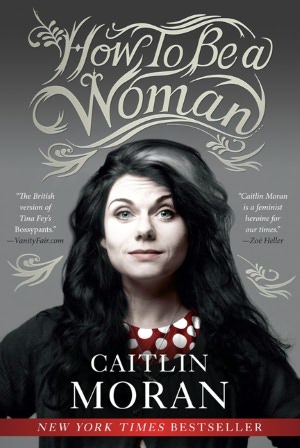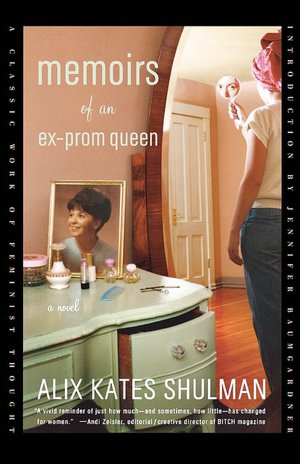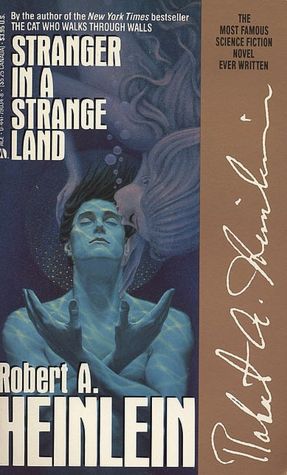So, here we are again. The Holiday Season is upon us. Depending upon who are you are, this either means a great deal or almost nothing at all. Whatever your traditions or affiliations (cultural, religious or otherwise), there is no escaping the Holiday Industrial Complex in this country. Every year I struggle with the very mixed emotions that accompany my identity as a secular, Jewish but nostalgic and kind of sappy person. I yearn for rituals and moments in which to touch base with family, consider particular stories/lessons about humanity, make special foods. This year, as the matriarch in a new family, I am confronted with decisions about how to integrate “Holiday” traditions into our lives, for our daughter’s sake. Although in 2012, we say “Holiday” in reference to things that might take place in December (to include Chanukah, Kwanzaa), what we really mean is Christmas. All jokes referring to paranoid conservatives spouting off about the "War on Christmas" or the "War on Jesus" aside . . . the popularization of Chanukah and Kwanzaa have always been simply a response to Christmas (and a pretty woeful one, at that). Let’s face facts: Christmas will never not be a really huge deal and one that takes the cake. Christmas is so embedded in our culture, our calendar, our winter and so beloved, there is no extricating it. Beyond the gifts, music, food and décor, Christmas is also a Holiday onto which everyone’s personal psychodrama is superimposed. The way in which families gather or don’t, the traditions people had as children or didn’t . . . the powerful dynamics at play during this time of year call up some of the deepest feelings of joy or longing for many Americans. Oh and also, reverent people consider it holy and significant.
I grew up in a home that was very culturally Jewish, but didn’t really give much credence to Holidays, per se. We typically belonged to a Synagogue, but mostly only went on the High Holidays, which, incidentally do not include Chanukah. For Jews, the major deals are Rosh Hashanah and Yom Kippur (New Year and Memorial Day-ish). Tragically, our High Holidays don’t involve gifts. And let's be honest---they aren't really all that fun. Rosh Hashanah tries hard with apples and honey and talk of renewal, but is sort of a downer what with the stern warnings about being inscribed in the Book of Life. Even the dressed up version of Chanukah has un-sing-able songs in minor keys and potato pancakes (?!).
Chanukah was a bit of an afterthought in my house and my parents often grumbled about how it is actually is a very minor Holiday, bastardized in this country to compete with Christmas. As far as I know, we are the only culture in which Chanukah is celebrated with gifts. The Americanized version of Chanukah can often look like a “Jewish Christmas,” with crass commercialism at the core. Despite my profound yearnings as a child, my parents weren’t buying it or buying it, although some years they managed to go beyond the candle lighting and chocolate coins to bestow socks, pajamas or books.
While, as an adult, I can totally respect their philosophical stand on this front, as a child, I desperately wanted what I saw most other kids having---not just an embarrassment of gifts, but a whole season devoted to them. I would spend time at friends' houses during December and watch as the tree was trimmed and all the rooms filled up with sparkling trinkets, bright parcels and the fragrance of cinnamon sticks. The promise of this sacred time when everything got so cozy and everyone gathered together from far and wide (particularly salient for me, as my siblings were much older and lived all over the world) felt impossible to resist.
I also knew people growing up who were Jewish, but just threw in the towel and celebrated Christmas. This was always sort of sad to me. It spoke to two unfortunate realities---that Jews in this country feel so overwhelmed by the power of Christmas that they feel compelled to participate in another religion's Holiday and/or they feel their children can't tolerate December without the Bacchanalia. Meanwhile, I totally get this. I won't mince words, Christmas wins. It is friggin’ awesome for kids. And let’s not even consider families in which there is only one Jewish parent and they “celebrate both.” I SAY AGAIN, CHRISTMAS WINS.
So how to make sense of it all now? The fact is that my parents were consistently generous throughout the year with their love, their time and many of the material things we desired. Just because I didn't score a payload at Christmas, doesn't mean I didn't have a wealth of toys and games. I had way more than I needed, as so many of us did. And despite my desire to be like the other kids, I never had to watch my parents grow anxious or irritable about shopping for a bounty of gifts or spending money they didn't have. They also made it clear that it was highly inappropriate to develop a sense of entitlement about gifts, especially as a child. These lessons were swallowed hard, but remain valuable.
I think this is what want for Isadora, ultimately. I hope she feels loved beyond belief and that she lives with a sense of joy throughout the year. I hope that she relishes how our family is different and feels confident and comfortable with who we are. I hope we celebrate important milestones with good cheer and delicious foods in each season and take great pains to be together with extended family as often as possible. I also plan to spoil her with frivolous gift items and possibly spend more money than is reasonable on things like a long sleeve t-shirt with a bulldog silkscreen. And certainly most important, I intend to teach her about giving to others and being of service because we have so much relative to most.
(Images: Marco Ghitti via Flickr)
































 For some southerners, camping under the stars, hunting a variety of animals, fishing for the largest bass in the river, and being outside in general is a necessity. I wouldn't go as far as to call myself the outdoorsy type but I do appreciate the beauty of nature. When I was younger, my family lived on a bluff in north Alabama. Our backyard was filled with massive rock sculptures, mossy pathways, trees for miles, honey suckle vines, a creek that seemed more like a river, the whole nine yards. My sister and I would spend hours riding crushed boxes down the leaf-covered ground, trying to squeeze in between boulder crevices, and figuring out the best way to cross the water without getting drenched (or in trouble with our mother). When I think back to my childhood, those memories burn as bright as the camp fire we used to make s'mores around with all the other neighborhood kids. My passion for carelessly playing around in the woods diminished when I was thisclose to stepping on a rattle snake. I swore off nature adventures after that day and never revisited my once favorite past time.
For some southerners, camping under the stars, hunting a variety of animals, fishing for the largest bass in the river, and being outside in general is a necessity. I wouldn't go as far as to call myself the outdoorsy type but I do appreciate the beauty of nature. When I was younger, my family lived on a bluff in north Alabama. Our backyard was filled with massive rock sculptures, mossy pathways, trees for miles, honey suckle vines, a creek that seemed more like a river, the whole nine yards. My sister and I would spend hours riding crushed boxes down the leaf-covered ground, trying to squeeze in between boulder crevices, and figuring out the best way to cross the water without getting drenched (or in trouble with our mother). When I think back to my childhood, those memories burn as bright as the camp fire we used to make s'mores around with all the other neighborhood kids. My passion for carelessly playing around in the woods diminished when I was thisclose to stepping on a rattle snake. I swore off nature adventures after that day and never revisited my once favorite past time.








